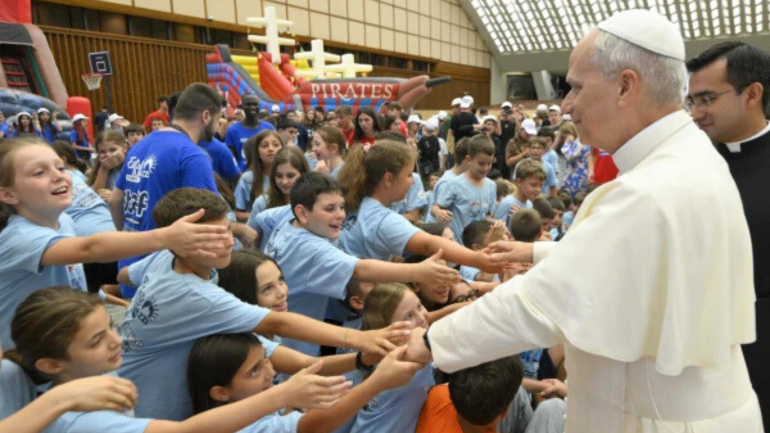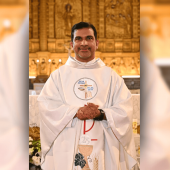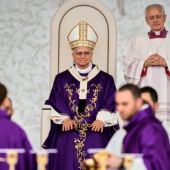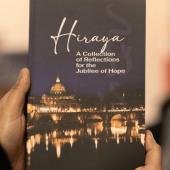Pope Leo calls for proper digital education as India celebrates Children’s Day

As India marks Children’s Day on November 14, celebrating the dignity and potential of every child, Pope Leo XIV spoke on the same theme during his address at the Vatican on November 13, underscoring the urgent need to protect children and adolescents in an era increasingly shaped by artificial intelligence.
As reported by Vatican News, speaking to participants of the conference “The Dignity of Children and Adolescents in the Age of Artificial Intelligence,” the Pope emphasized that the well-being of minors cannot be secured by policies alone. Instead, he said, it requires a comprehensive commitment to proper digital education, responsible guidance, and the cultivation of ethical awareness among adults and institutions.
Pope Leo noted that artificial intelligence is rapidly transforming daily life, shaping education, entertainment, and even the social environment in which children grow. This shift, he warned, “raises important ethical questions, especially concerning the protection of the dignity and well-being of minors.”
One of the most pressing concerns, he said, is the vulnerability of children to manipulation through AI-driven algorithms, which can influence their decisions, preferences, and online behavior. For this reason, he stressed the need for parents, teachers, and pastoral workers to be fully aware of these dynamics and equipped with tools to guide and monitor minors’ digital interactions.
The Pope reminded governments and international institutions of their responsibility to design and implement robust AI-related safeguarding measures, including updated data protection laws and ethical standards for tech development. However, he cautioned that legislative efforts, while essential, remain insufficient.
“Safeguarding the dignity of minors cannot be reduced to policies alone,” he said, echoing a message often repeated during his pontificate, which has notably prioritized ethical reflection and pastoral guidance in the age of AI. “What is needed are daily, ongoing educational efforts, carried out by adults who themselves are trained and supported by networks of collaboration.”
Recalling a message from Pope Francis about the vocation of adults as “artisans of education,” Pope Leo highlighted the importance of forming communities capable of supporting youth as they navigate both the opportunities and risks of digital technology. This includes recognizing the dangers of premature, unlimited, and unsupervised digital access, which can affect relationships, identity formation, and personal development.
Minors must be helped to understand how their online experiences shape their social and emotional lives, he said. Only then can young people “approach the digital world as a means of strengthening their ability to make responsible choices for themselves and for others.”
Ensuring that AI remains an ally rather than a threat, he stressed, requires an educational, ethical, and responsible approach from all sectors of society.
The Holy Father concluded by expressing hope that the conference would help build “a solid foundation for our ongoing service to children, young people, and the entire ecclesial and civil community.” He imparted his blessing to participants, reaffirming the Vatican’s commitment to defending the dignity of every child in a rapidly evolving technological world.
Radio Veritas Asia (RVA), a media platform of the Catholic Church, aims to share Christ. RVA started in 1969 as a continental Catholic radio station to serve Asian countries in their respective local language, thus earning the tag “the Voice of Asian Christianity.” Responding to the emerging context, RVA embraced media platforms to connect with the global Asian audience via its 21 language websites and various social media platforms.












